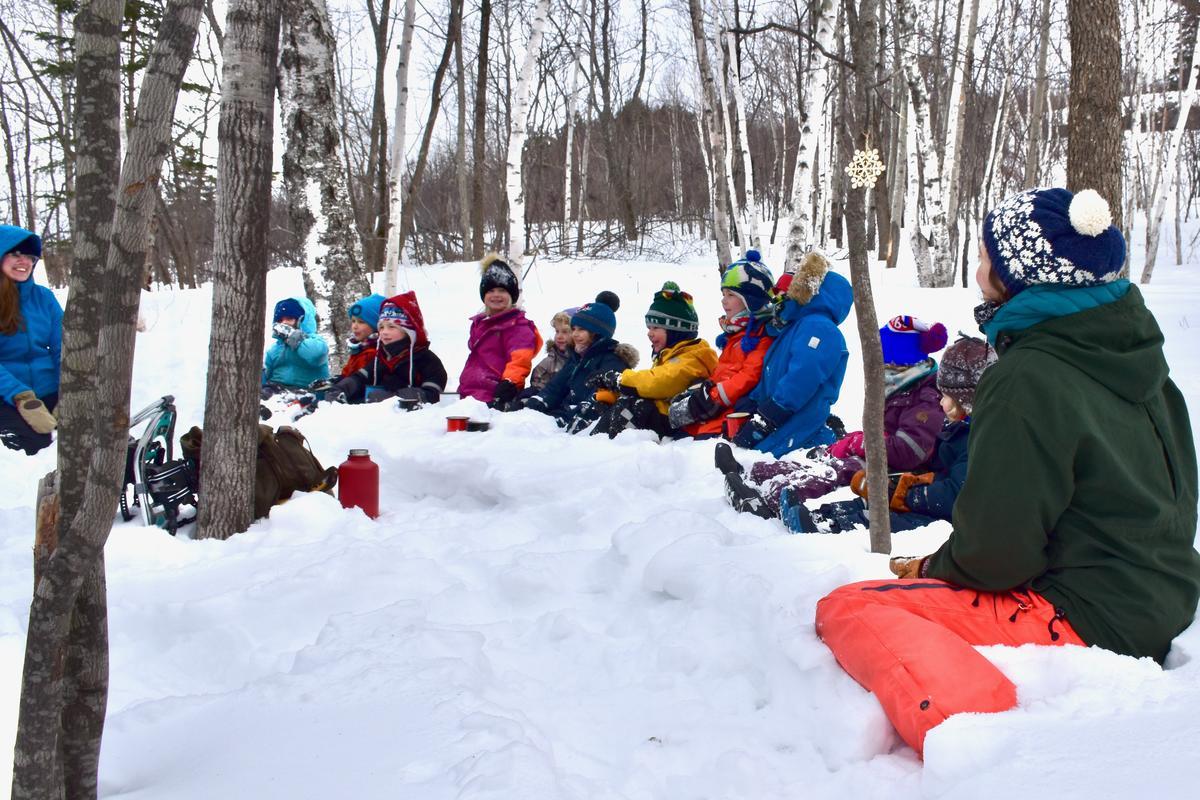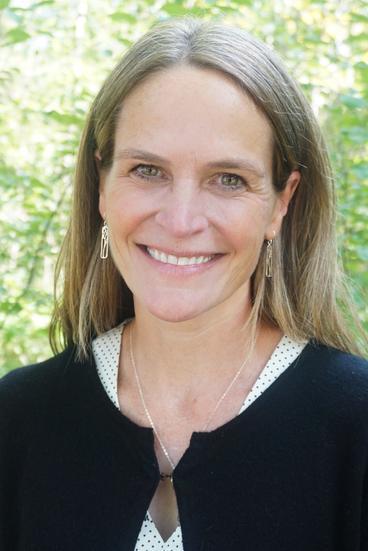
There’s a general recognition that nature can be therapeutic and restorative for people, that it has a positive effect on health and wellbeing. A growing body of evidence is now demonstrating that spending time in nature benefits early childhood learning and development.
UMD Professor Julie Ernst is at the forefront of this burgeoning field, examining the links between nature and child development. She is the coordinator of a new major at UMD related to this area of study. The bachelor of applied science in Childhood Nature Studies was created because she and others saw both a need and an opportunity.
A growing interest in connecting children with nature and a shortage of quality early child care options coalesced to create a demand for nature-based programs. In the last decade, a dozen nature preschools have popped up in the Duluth area. Many of these schools have waiting lists. This trend is quickly spreading across the country, with about 600 nature preschools and forest kindergartens providing immersive nature experiences to young children.
Area elementary schools have also recognized the importance of nature-based learning for older children. Many have developed nature playscapes and incorporated more outdoor time into their curriculum. The Minnesota Department of Education has developed an array of resources and webinars to support outdoor play and learning for all children.
An Alternative Approach
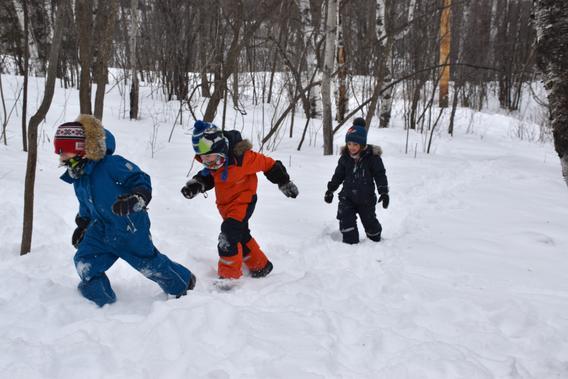
The Childhood Nature Studies program was conceived with a different lens—a broad, forward-thinking philosophy geared toward creating socially just and ecologically-sustainable communities.
“What is it that our world needs?” asks Ernst. “What kind of people do we want our children to be and become?” “How can we support their unfolding capabilities?” Those are questions at the heart of this program.
Ernst’s research suggests nature preschools support children’s curiosity, creativity, empathy, and resilience. She sees these as invaluable characteristics for building a healthy future.
Instead of tight schedules and an emphasis on direct instruction, children in nature preschools are allowed more time for creative exploration and independent play. Engaging in extended periods of unstructured play allows children’s brains to better attend to, interpret, and learn from experiences. She also points out that when children play together in an unstructured way it helps them develop important social and emotional skills, like self-regulation, which will aid them in school and throughout life.

Desiree Hagenbeck, a student in UMD’s Outdoor Environmental Education program, is taking “Young Children, Nature, and Sustainability,” one of the key Childhood Nature Studies courses. As part of the course, Hagenbeck has gone to several different nature preschools to observe and get a sense of how they operate. “It has been interesting to watch the kids interact with nature, each other and the teachers,” she says. “It’s very different from a traditional preschool. It seems like the kids’ demeanor is a lot calmer than what I’ve seen in other settings.”
Hagenbeck is a non-traditional student who is married and has children. After having her children, she went back to school to get an associate degree in early childhood development. She started working in a traditional preschool. “It wasn’t filling my cup,” she admits. “I heard about nature-based preschools and it seemed like a really cool concept, especially because I like to be outside in nature.”
Visiting the nature preschools has been eye-opening for Hagenbeck. “They really let kids be kids. I don't think people realize kids can still learn academic concepts and meet developmental milestones while playing in nature and having hands-on experiences.”
Hagenbeck will be completing an internship at the Little Barnyard Preschool in Esko this summer. After she graduates, she's “excited to use what I’ve learned to open my own preschool,” she says.
A Unique Program
The Childhood Nature Studies major is unique because it spans different disciplines and is designed to encourage connections across education, social services, and health/allied health professions. “We are the only program of this kind in the country,” explains Ernst. “We were intentional when designing the program in making it cross-disciplinary. It draws from fields like social work, education, psychology, health, and outdoor and environmental education.”
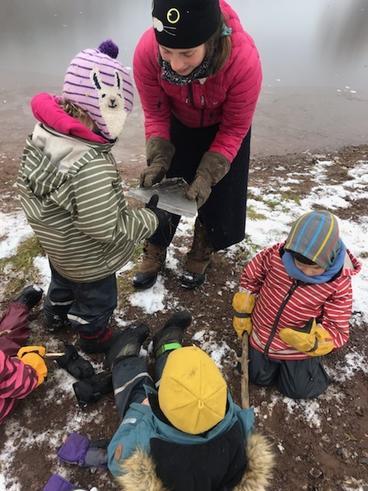
The program aims to prepare graduates to work with children and families in a range of settings and professions. In addition to being cross-disciplinary, the program is well connected to the community. There’s a collaborative of educators in the area who are advocating for nature play for all children. Some have collaborated with Ernst on research projects, and many are expressing interest in serving as sites for field experiences for the new major.
The major’s internship requirement enhances students’ coursework with opportunities to apply and integrate what they’ve learned and deepen community connections. The curriculum is flexible, with course options clustered within themes, and an overall low number of required credits so that students can easily transfer into the major or add complementary minors or majors based on their interests.
Ernst adds that the program would be a good foundation for students wanting to pursue graduate work as there’s an emphasis on reflective, integrative, and critical thinking. “I think it will be attractive to the generation coming in. It will resonate with those who want to know how to contribute to a more just and sustainable world,” she says. “We’re at the front end of this movement in higher education. We are so fortunate to be here in Duluth right now, learning alongside amazing practitioners who are enriching the community and children’s lives through supporting nature play and nature-based learning for all children.”
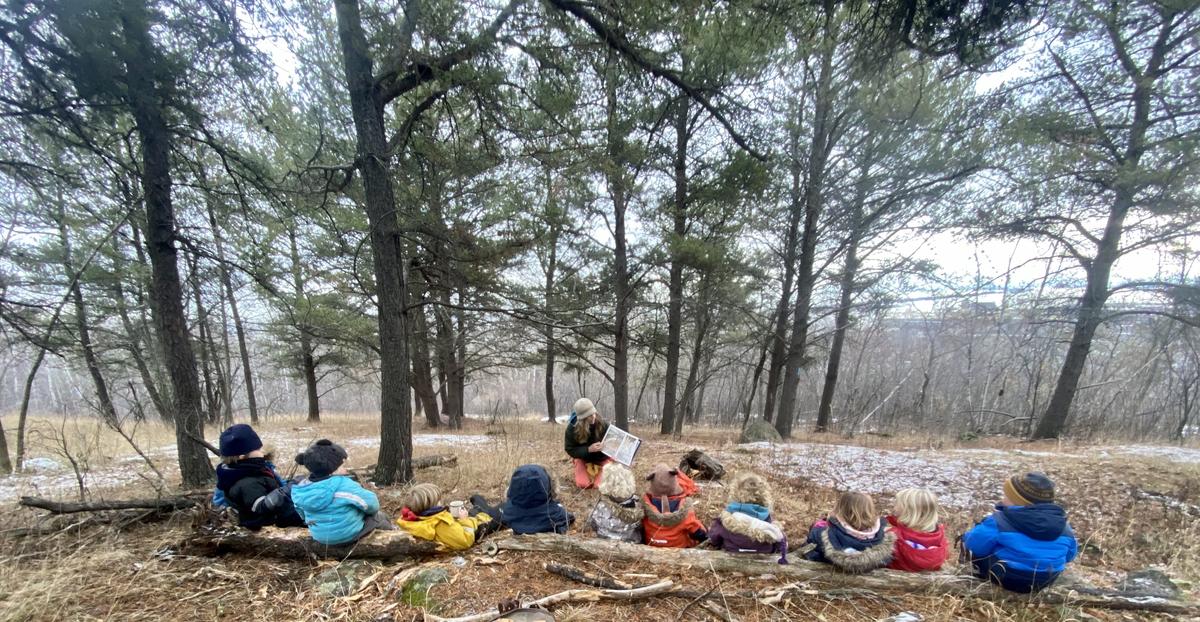
About the Childhood Nature Studies program
Feature photo at top: an outing at the Wind Ridge Schoolhouse, a local nature preschool.
